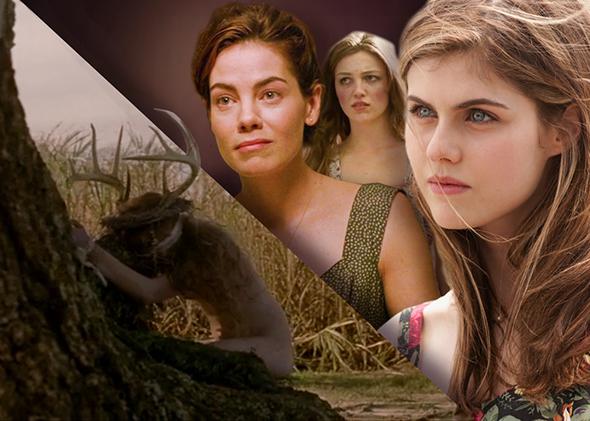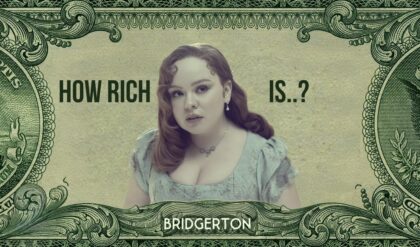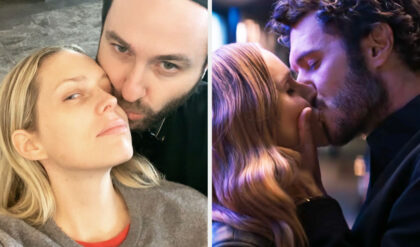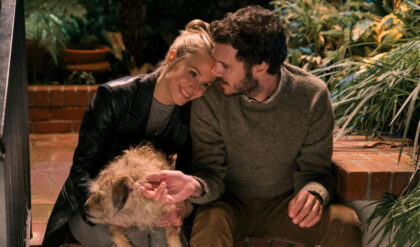
In the second episode of True Detective, Rust Cohle (Matthew McConaughey) and Marty Hart (Woody Harrelson) find themselves at a seedy trailer-park bunny ranch, where Marty becomes outraged at the presence of an underage prostitute named Beth (Lili Simmons). Marty lays into the madam, Jan (Andrea Frankle), for employing a girl clearly younger than 18. But Jan isn’t having it. She tells Marty he has no idea of Beth’s circumstances, what she’s left behind, and besides, “Girls walk this earth all the time screwing for free. So why is it you add business to the mix and boys like you can’t stand that thought? Because suddenly you don’t own it the way you thought you did.” Still disgusted, Marty hands Beth some cash and tells her, “do something else.” Back at their car, Rust asks Marty if he was making “a down payment.”
Even at the time, the show seemed to be on Jan’s side: Marty had already shown himself to be a high-order hypocrite. After Sunday night’s episode we can be sure: Calling it a down payment may have been a crude way for Rust to put it, but it was not inaccurate. Seven years later, Marty cheats on his wife with Beth, the troubled former underage prostitute whose innocence he had once been so keen to protect.
True Detective, let me concede upfront, does not come close to passing the Bechdel test. The show opens with the violated body of a dead woman crowned with antlers, and it has consistently objectified the naked bodies of the young women Marty has slept with—particularly during Sunday night’s extended, groaning, porny sequence with Beth. Michelle Monaghan, who plays Marty’s wife, Maggie, has done well with the material she’s been given, but before this week that consisted almost entirely of her being a (completely justified) nag. In the previous episode, Elizabeth Reaser showed up for a minute so she could deliver one line as Rust’s long-term girlfriend. The other women on the show have been mistresses, prostitutes, corpses, or some combination thereof, most of them barely memorable.
Presenting women as a parade of scolds, sluts, and the strung-out typically makes me hate a television series. But I love True Detective. While it is possible—by which I mean undeniably true—that I am completely in thrall to the ever-captivating McConaissance, I think True Detective has not triggered my usual response because it is, at least on some level, very aware of how stereotypically and perfunctorily it treats its female characters. When it comes to women, True Detective is undeniably shallow—but I think it’s being shallow on purpose.
Ignoring women may be the show’s blind spot, but it is also one of its major themes. True Detective is explicitly about the horrible things that men do to women, things that usually go unseen and uninvestigated. No one missed Dora Lange. Marie Fontenot disappeared, and the police let a rumor stop them from following up. Another little girl was abducted, and a report was never even filed. “Women and children are disappearing, nobody hears about it, nobody puts it together,” Rust told his boss Sunday night, outlining what he believes is a vast conspiracy in the Bayou. Rust is haunted by women who aren’t there—his ex-wife and his dead daughter—while Marty cannot deal appropriately with the women who are.
It’s with Marty that True Detective most often tries to have its misogyny and get away with it, too. (“How good is cake if you can’t eat it?” he says to his girlfriend Lisa when she chides him for wanting a mistress who doesn’t sleep around.) The show presents Marty’s women as kinky and crazed and seems overly sympathetic to Marty’s skewed view of them. But if Marty’s peccadilloes have been used for titillation they have also been used for character assassination. While True Detective has luxuriated in the tawdriness of his particularly pronounced virgin-whore complex, it has also interrogated it: Marty’s inability to control himself with women is his defining, disfiguring character flaw.

Marty fancies himself a protector, but again and again he is an aggressor. He becomes almost as violent when controlling women as he does when protecting children: slapping his daughter, methodically beating the boys she had sex with, breaking down his girlfriend’s door, wrapping his hands around his wife’s throat. His sexual double standards are staggering: Whatever he does is fine; when women do it without him, it’s disgusting. In his interviews with detectives Papania and Gilbough, Marty talks endlessly about the way that a family can ground a man—then we watch him use his married-father status as a cover to misbehave, praising propriety while doing nearly anything he pleases. (If this doesn’t set your Yellow King nerves jangling, you have no Yellow King nerves.)
The show seems cognizant of the gendered nature of perspective, even if the men behind the camera occasionally expose their own. (The actress who plays Lisa is clearly conscious of just how long the camera lingered on her décolletage.) When Maggie arrives at the police station for her interview, the cops say they are looking for her “perspective,” which she methodically, calmly denies them. And while Maggie having sex with Rust seemed inevitable from the moment they hit it off over a family dinner, I was impressed with the way True Detective complicated this particularly clichéd turn of events. Maggie was the one with the agency: Rust and Marty both became, however briefly, pawns in her story.*
Granted, we have had very little insight into Maggie’s character outside the context of men: What are her Marty- and Rust-less desires, needs, wants, wishes? But this sequence made it clear that she does have all of those things, and thus a real three-dimensionality, even if we have not been privy to it, focused as we are on Rust or Marty, who are so wholly caught up in themselves.
That self-absorption is typical of all the men on True Detective, who often don’t even notice female insight. Maggie is able to conceal herself from Gilbough and Papania in part because they’re clearly not inclined to consider her very deeply. Marty didn’t even seem to register Jan’s character-flaying speech. Last week, Marty’s daughter Audrey told him over supper, “Women don’t have to look like you want them to.” Maggie gave him a “she’s got you there” look and Marty barely took it in. In an earlier episode, when Marty asked his younger daughter to leave the room, she only did so after Maggie nodded in agreement. (This echoed Beth’s behavior at the bunny ranch: She waited for a nod from Jan before agreeing to show Rust Dora Lange’s diary.) Marty may be the law, but he doesn’t have all the power. There’s an entire female hierarchy he is completely oblivious to.
In a post about the Carcosa–Yellow King mythos’ relationship to True Detective, Alyssa Rosenberg pointed to a story by James Blish called “More Light,” in which a character named James Blish visits a friend named Bill Atheling, who is in poor health because he has been reading The King In Yellow, the mythical play that drives its readers insane. Atheling tells Blish that he hasn’t shown his wife the text, and Blish understands why. “Female common sense would blow the whole thing sky-high in a minute,” he says. True Detective is a man’s story taking place in a man’s world, a world in which ignoring women has been the cause of untold horror—and has probably delayed that horror’s resolution as well. Would fully realized female characters be preferable to these fleeting glimpses, however well those glimpses highlight the limitations of our leading men? Yes, definitely. But I can wait until next season for that.
News
How did Jodie Foster typecast herself by being so good at her job?
Jodie Foster has portrayed a wide range of characters on screen. She captured hearts as the precocious teen in Freaky Friday and stunned audiences with her role in Taxi Driver. In The Silence of the Lambs and Panic Room, she demonstrated a steely resolve paired with human…
Jodie Foster sets her next film, and more casting news this week
Jodie Foster is going from Night Country to wine country. According to Variety, the Academy Award-winning actress has set her first project since starring in True Detective‘s fourth season earlier this year. She’ll lead the film Vie Privée, an upcoming French language project from director Rebecca…
Justin Bieber has ‘alienated’ people around him amid ex-mentor Sean Diddy’s arrest: ‘His family members are…’
Justin Bieber has “alienated” people around him as he “doesn’t trust them”, said an insider, claiming that the singer has done “some really crazy s-t.” While Justin Bieber has strongly rejected any connection with the allegations against Sean Diddy Combs, the American…
Oscar-Winner Jodie Foster Cast in Rebecca Zlotowski’s Latest French Film
Jodie Foster Cast in New French Film Academy Award-winning actress, Jodie Foster, has come on board the latest film from director Rebecca Zlotowski, Vie Privée. Jodie Foster, who is fluent in French, will be starring in the upcoming international film, Vie Privée. This film…
‘Yellowjackets’ Season 3: Everything To Know So Far About The Doomed Team’s Return To The Wilderness
Yellowjackets has been streaming on Paramount+ for years, but the survival/coming-of-age series recently received the famed Netflix boost. The series’ second season did lose some momentum while it aired, and that season isn’t on Netflix as of yet (and hopefully, you aren’t reading…
Jodie Foster Reacts To First Emmy Win
Jodie Foster, one of the most celebrated actresses of our time, has made headlines with her recent Emmy win, marking a remarkable comeback year in her illustrious career. After being nominated for an Academy Award for the first time in…
End of content
No more pages to load











